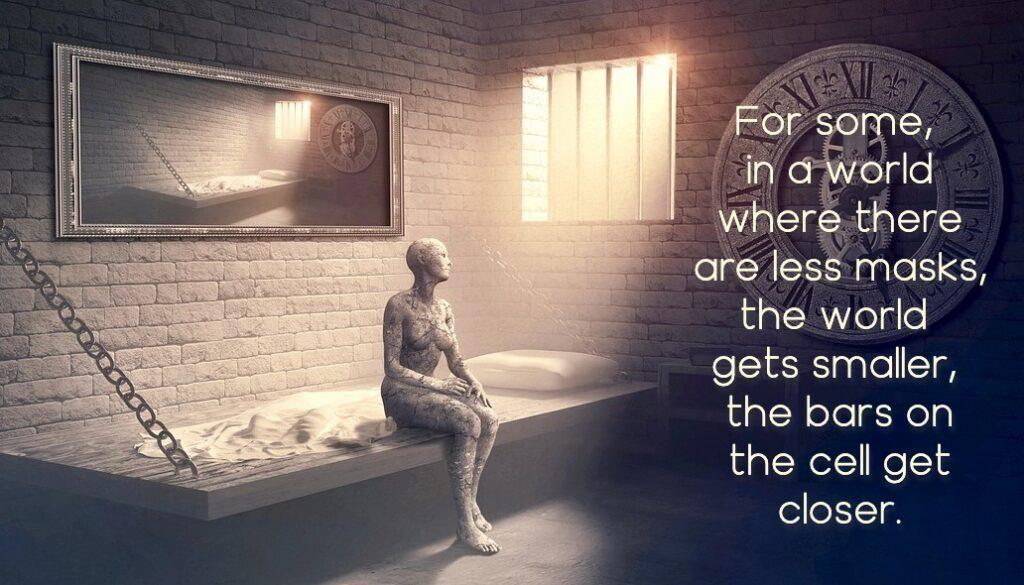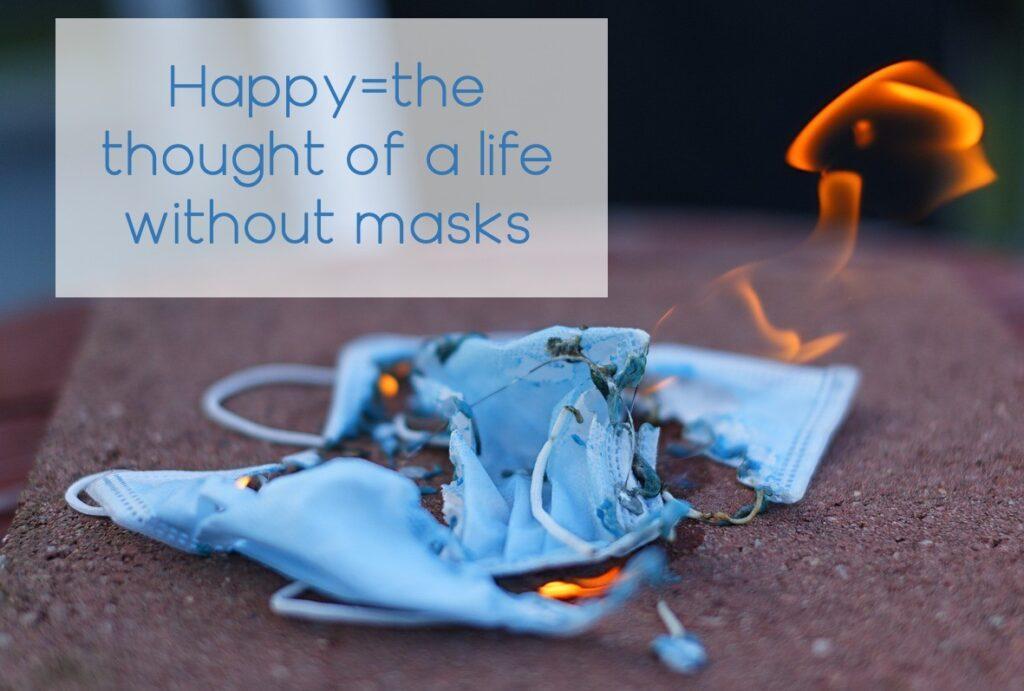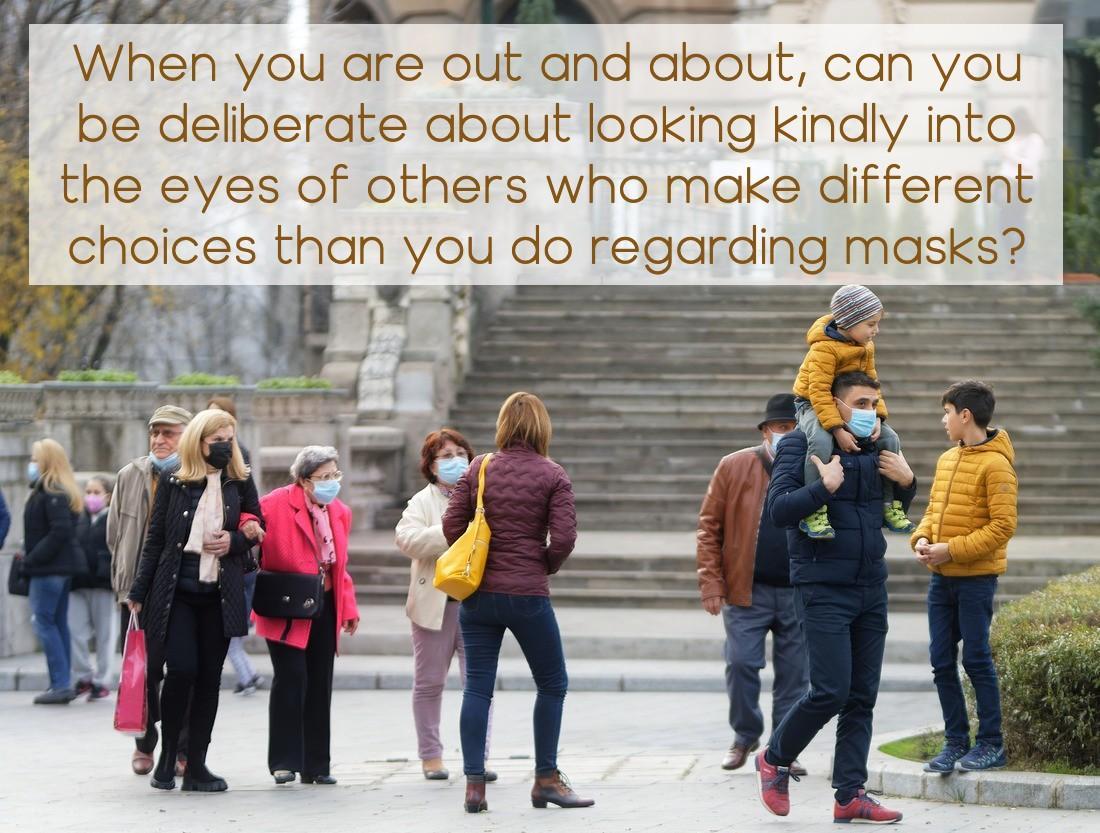The COVID-19 pandemic has created adverse conditions.
Danger, restrictions, mandates, illness, death, confinement, quick pivots, social divisiveness
For over 24 months.
We’ve been experiencing these adverse conditions related to the pandemic for 2 years. The challenges of the pandemic have shifted over the weeks and months as:
- medical researchers have learned more about it, treatments etc.
- science discovered the impact of masks
- vaccines were approved and implemented in stages, over time
- variants have emerged
- the cumulative effects of the pandemic impacted each of us differently over time
- social and political positions began in response to the pandemic but then took on a whole life of their own
Our bodies react to adverse experiences with feelings–BIG feelings.
Feelings are our body’s way of giving us valuable information.
To feel fear when standing in front of a bear is adaptive—it will keep you alive. To feel anger when someone is harming your child gives energy to move the child to safety. Feelings help us know what to do.
As the pandemic landscape shifted, and so each of us found our constellation of feelings shifting. Sometimes, the very situation that created relief for some created increased anxiety for others.
Now again, as we in Manitoba are no longer required to wear masks in public as of March 15, our feelings will continue to give us all information.

These feelings are likely to again shift—some will receded, others will amplify. These feelings will be different inside of different people:
Anger/Rage:
Some will be angry that the mandates are gone. They will question if the mask choice is more in response to protests than science.
Some will be angry that the mandate for masks ever existed. They will find themselves having unexplainable rage as they sit in a public place without masks. They would have expected to find relief but will be reminded all over again that for months masks were mandatory.
Fear:
Those that immunocompromised, have serious underlying medical conditions or who have young children may be more fearful to be out in public. If the masks helped lower rates of transmission, is the world now scarier?
Our world is moving towards living with the pandemic, rather than eradicating it. This shift may make sense on a population level—but for some, this feels worrying, even terrifying.
Those who choose to continue wearing masks fear ridicule and judgement—or worse as they go out in public wearing masks that others scorn.
Abandoned:
There are those who have scrupulously done everything they can do avoid all risk of COVID-19—because they have a child with a terminal heart condition, a premature infant, a family member who has no immunity because of cancer treatment, or a spouse with an organ transplant.
Folks like this may wonder if the world has stopped caring about them. The risk remains real and dangerous for them—and now the world has lowered protections for them.
Some will feel lonely in an agonizing way–abandoned.

Joy:
The risk of social isolation is comparable to smoking 15 cigarettes a day, according to a meta-analysis of Julianne Holt-Lundstadt’s research. For reals. The health benefits of being with others is real. It matters.
Social connection is essential to our health in every way.
During the pandemic, people living alone have been isolated. Extroverts have been throttled back at intolerable levels. The cost of isolation is very real and very steep. Masks create distance that feels intolerable to some.
Pandemic mandates have been hard for us all—and harder for those who have chosen not to be vaccinated. Brutal.
The dropping of mask mandates means:
- that people can smile at each other again-with their whole face. Won’t that be fantastic?
- small talk will the barista will be easier.
- I love me a clean, cool fresh maskless breath of air—doesn’t everybody? Stale air in a mask for hours on end is HARD
- folks that have hearing deficits can have the advantage of seeing a person’s mouth with a clearer sound.
- children at school will have more ability to be kids—and teachers won’t have to spend their days reminding children to put their masks up/on.
Some of you will be burning your masks with glee.

You’ve waited for this day where you don’t have to wear a mask. You want to celebrate. Of course you do.
But one person’s celebration is another person’s nightmare. What to do?
When feelings shift, our external responses can get larger and more reactive as we are not yet used to these feelings.
I’m hoping for one more big feeling to be a part of the equation:
Compassion:
There will be people who will have different big feelings than you do this week. Some will have the same feeling—but for a wildly different reason.
Can we hold space for others to feel differently than we do—because of different sources of pain and suffering, different backgrounds, different core wounds?
Can you give yourself permission to feel your feelings–big and bold and “as is”? Can you give the same permission to another who feels very differently than you? Can you be thoughtful what the expression of your big feelings look like when you are around others who have another perspective?
Can we avoid dehumanizing those who feel very differently than we do by labelling them as idiots, a**holes, or worse?
When you are out and about, can you be deliberate about looking kindly into the eyes of others who make different choices than you do regarding masks? Even if it is hard, can you give them the benefit of the doubt that their choice may be a matter of survival for them?

Can you be aware of those now, more than ever, isolated in their homes? Even if you choose to not wear a mask—even if you don’t “believe” in masks—can you recognize that some are at home, feeling unimportant to the rest of the world?
Can you be aware of the utter essential core need of many to not wear the masks for one day longer than required by law—that their tolerance for masks ended months ago? Can you feel their now quenched longing to see people, be with people, and be seen?
As for me, I have made a choice, as have many of you, in anticipation of this day.
My decision: I will continue to wear a mask in public spaces. (And will be reassessing ongoing.)
The rationale that makes mask wearing the right choice for me:
- I have a grandbaby who isn’t old enough to be immunized. His parents are protective of him—and I love them for it. Wearing a mask is important to be able to snuggle him and be close to him as babies love to explore “Eyes, ears, mouth and nose”.
- I have loyalties to those who will wear a mask and avoid crowds because of those at home at very high risk. I would like to be one of a critical mass that makes mask wearing quite normal to increase comfort for those who find ongoing mask wearing essential to protect loved ones.
- Mask-wearing is a part of my solidarity to health care workers who are exhausted from work, and defeated by myths about COVID-19 after silently pulling the blanket over the face of another soul fallen victim to the virus.
I will continue to wear a mask–but I will remove it at the table of a restaurant gathered with friends. I will go to a movie, and pull it down to sip from a straw. I will stop to chat with a friend in the store who isn’t wearing a mask while keeping mine on unless we slip outdoors to finish the conversation.
I am in the position of being able to generally wear a mask but flexible to be in relationship with others. I seek a balance to protect the health of others while facilitating the health of others and myself. Health is physical—and emotional and psychological and spiritual and relational. I want to honor all the realms of health in a complex world.
I realize that my decision will be unpopular for many. Some of you will judge me for wearing a mask at all. Others will question why I’d be willing to take it off in a restaurant.
You may have big feelings about my decisions and how they differ from yours.
I may have big feelings about your decisions too.
We will all be working to have our “compassion” feeling be HUGE as other big feelings threaten to crowd compassion out.
We can do it.